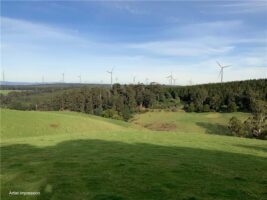Hydro Tasmania says it has reached an agreement with its biggest customer – the Bell Bay Aluminium smelter – to help it manage the record lows in its hydro storage and the cut to the Basslink connection to the mainland.
 The state has had to bring back its mothballed gas generators to cope with demand, because its efforts to replenish its water resources have been hampered by record low spring rainfall, and the loss of inflows from the mainland. In addition, several hydro power plants have been in and out of service due to bushfires threatening power lines.
The state has had to bring back its mothballed gas generators to cope with demand, because its efforts to replenish its water resources have been hampered by record low spring rainfall, and the loss of inflows from the mainland. In addition, several hydro power plants have been in and out of service due to bushfires threatening power lines.
On Thursday, Bell Bay Aluminium, which accounts for around one quarter of the state’s electricity demand, said it had agreed to cut its load by around 10 per cent, or 30MW – 40MW – the second major energy user to cut its load in response to the crisis.
Bell Bay said the load cuts would take effect immediately, and could last up to four to five months. The move is likely to result in job losses, at least among contractors.
“Tasmania currently faces a challenging time due to the combination of historically low dam storage levels, the lowest spring rainfall on record and the extended outage of the Basslink cable,” the company said in a statement.
“We have reached an agreement with Hydro Tasmania on the best energy savings measure we can provide to assist with managing Tasmania’s energy security during this difficult time.”
The loss of Basslink is also likely to affect the state’s internet service, with warnings that the fibre connection within Basslink will be out of service for at least a month as repairs take place. It could be several months before the connection to the mainland is replaced. The service was lost on December 20.
Electricity prices have soared to more tun $110/MWh – three times its average – because of the use of gas-fired generation.
TEMCO, the operator of the country’s only manganese alloy smelter, has already volunteered to cut its demand in half – down to 30MW – to try to ease the problem.
The government said last month is confident that it will not have to impose power restrictions on other users, but the Bell Bay agreement suggests it is concerned that the problems will continue, and its reserves deplete further.






